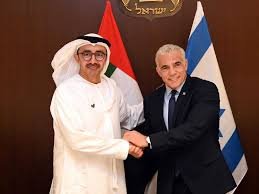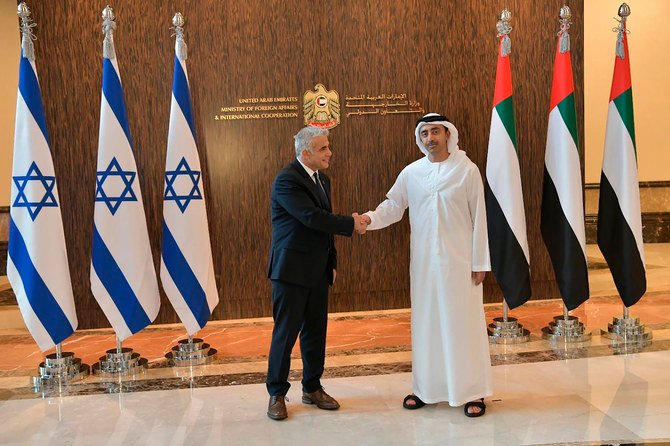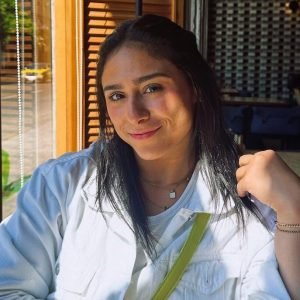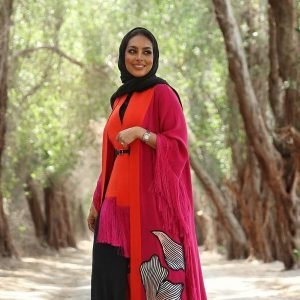In a moment that underscores the fast-evolving relationships in the Middle East, Israeli opposition leader Yair Lapid made a significant visit to Abu Dhabi, meeting with the President of the United Arab Emirates, Sheikh Mohamed bin Zayed Al Nahyan, and the country’s Foreign Minister. Though brief, the trip carried weight far beyond its duration, symbolising a mutual desire to continue strengthening diplomatic and cultural ties between Israel and the UAE.
A Warm Welcome in Abu Dhabi
The visit, which took place amid a backdrop of shifting geopolitical landscapes, was marked by a sense of warmth and optimism. Upon arriving in Abu Dhabi, Lapid was received with customary Emirati hospitality. Despite being an opposition figure back home, his presence was treated with high regard by the UAE leadership, reflecting the country’s commitment to maintaining steady diplomatic relations with Israel irrespective of internal political changes.

It was a visit that went beyond mere protocol. The personal rapport between Lapid and UAE officials was visible in every photograph, handshake, and exchange of words. The Emirati leadership seemed keen to emphasise that the Abraham Accords, signed in 2020, weren’t just a flash in the pan but a long-term commitment to peace, cooperation, and mutual growth.
Conversations Rooted in Progress and Stability

According to those close to the meetings, conversations revolved around shared regional challenges and opportunities. The leaders discussed ways to further enhance collaboration in sectors ranging from technology and security to culture and tourism.
Lapid reportedly expressed his appreciation for the role the UAE has played in fostering regional dialogue. He highlighted how continued communication between nations can act as a stabilising force in a region too often marred by conflict and mistrust.
The UAE side reaffirmed their belief in open dialogue and economic partnerships as tools for regional transformation. Both parties seemed to agree that, while challenges remain, the future holds remarkable promise if approached with honesty and mutual respect.
A Diplomatic Relationship That Defies Expectations
Since the normalisation of ties in 2020 through the Abraham Accords, the relationship between Israel and the UAE has grown at a pace that surprised many observers. Trade between the two nations has boomed, surpassing initial forecasts. Direct flights, business collaborations, and cultural exchanges have become a regular feature.
Lapid’s visit further signalled that this relationship is not bound by the fluctuating tides of Israeli domestic politics. Even from his position as opposition leader, Lapid was welcomed not just as a guest but as a valued partner in dialogue. This reinforces the idea that the UAE-Israel relationship has evolved beyond transactional politics into a bond grounded in long-term strategic interests and a shared vision for regional prosperity.

Human Stories Behind the Headlines
Beyond the official meetings and diplomatic gestures, what often goes unnoticed are the human stories that make these international ties truly meaningful.
Take, for example, the Israeli entrepreneurs who have set up offices in Dubai over the past few years, finding not just business opportunities but friendships and community. Or Emirati students who have travelled to Israel for educational exchanges, returning home with new perspectives and lasting connections.
For many on both sides, this growing relationship represents a chance to redefine what the Middle East can be — a region where differences are acknowledged but collaboration prevails.
Lapid’s trip, though brief, was a reminder of how personal connections between leaders can ripple outwards, affecting the lives of ordinary people and creating opportunities for those who once could not have imagined them.
A Focus on Regional Stability
One of the key themes during the visit was regional stability. With tensions still high in parts of the Middle East, both parties underscored the importance of continued dialogue between nations that may not always agree on everything but recognise the value of working together where interests align.
While public details of their discussions on security issues remain limited, it’s clear that both sides are invested in ensuring that the economic and cultural bridges built in recent years are safeguarded against the instability that sometimes threatens the region.
There was also an unspoken understanding that the Abraham Accords could serve as a blueprint for other regional relationships, encouraging more countries to move towards normalisation and cooperation.
The Symbolism of the Visit
In diplomacy, symbolism matters as much as substance, and Lapid’s visit was heavy with it. That an Israeli leader, even one currently outside of power, would be received by the UAE’s highest authorities speaks volumes about the maturity and depth of this diplomatic bond.
It sends a message to the international community that this relationship is not a fleeting convenience but a strategic partnership that both sides value deeply. It also highlights the UAE’s forward-looking foreign policy approach — one that seeks opportunities for growth, dialogue, and peaceful coexistence over conflict.
Cultural Bridges: More Than Politics
One of the more refreshing aspects of the UAE-Israel relationship has been its cultural dimension. From art exhibitions to food festivals, both nations have invested in people-to-people connections that transcend politics.
In his conversations, Lapid reportedly emphasised the importance of cultural diplomacy in breaking down stereotypes and fostering genuine understanding between communities.
This emphasis on soft diplomacy has already paid dividends. Israeli artists have showcased their work in Emirati galleries. Chefs have collaborated on fusion dining experiences. Musicians have performed for new audiences. These shared experiences weave a social fabric that can outlast political disagreements.
Economic Collaboration as a Cornerstone
Another pillar of the discussions was economic collaboration. The UAE and Israel have already signed agreements covering sectors such as healthcare, energy, technology, and agriculture. Lapid and his hosts spoke about ways to expand these partnerships, particularly in renewable energy and water security — issues critical to the region’s future.
Both sides agreed that economic collaboration can serve as a stabilising factor in the Middle East. By creating jobs, sharing technology, and building infrastructure projects, nations can reduce tensions and offer their populations a tangible stake in peace.
Looking Ahead: A Future of Shared Opportunity
While Lapid’s trip was brief, its implications are far-reaching. It reaffirmed that even amid domestic political turbulence, Israel’s relationship with the UAE remains steady and valued.
For the UAE, it was a chance to reinforce its image as a nation committed to peaceful coexistence and progressive diplomacy. For Lapid, it was an opportunity to demonstrate his international credentials and contribute positively to one of Israel’s most significant recent diplomatic achievements.
Most importantly, for the people of both nations, it was a reminder that peace is not just the absence of conflict, but the presence of opportunity — for business, for friendship, for understanding.
As the Middle East continues to navigate its complex realities, the UAE-Israel relationship stands as a beacon of what is possible when nations choose dialogue over division and progress over stagnation.
Conclusion
In the end, Lapid’s meeting with the UAE president and foreign minister was more than just a diplomatic courtesy call. It was a statement of intent. A signal that despite political shifts and regional challenges, the commitment to peace, progress, and partnership endures.
This visit captured the essence of modern diplomacy in the Middle East: pragmatic, hopeful, and people-focused. It left observers with a sense that while much work remains, the path ahead is filled with promise.
And if this trip proved anything, it’s that sometimes, even a brief conversation can open doors that last for generations.
Follow us on instagram: UAE STORIES
UAE and Bahrain Leaders Unite in Abu Dhabi for a Visionary Dialogue













